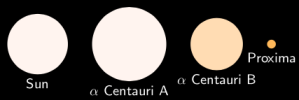Yeah, maybe my aging brain, but it was hard keeping track of the Chinese names for me.Problem with reading the books is I don't remember who's who by name :|
Shogun is awesome. In between the release of the episodes I started to watch Kurosawa's movies again
I'm now into FALLOUT on Prime. Which has the "Westworld" vibe.
Funny and very enjoyable.
And Shogun is very good.


For example, the initial inspiration for writing The Three-Body Problem came from a paper about the three-body problem in classical mechanics, which involves the motion of three bodies under mutual gravitational attraction and is unpredictable under current mathematics and physics. I read the paper and suddenly thought: what if the three bodies were three suns? How would intelligent life on one of the planets in such a system develop? This was a good science-fictional idea — based on solid science but also evocative of interesting stories. But to go back to real science, we have not, to date, discovered any trinary star systems in which the stars move in this chaotic manner.
I assumed that was the explanation here: the trisolar's home world was this very rare exception. The universe being infinite and all that, it's out there, right?very rare unless already in that configuration
Did the show claim the trisolar's were from Alpha Centauri? I must have totally missed that!Alpha Centauri
Evidently, yes, in the books (but I haven't confirmed). In the series it might not be explicit but implied due to distance.Did the show claim the trisolar's were from Alpha Centauri? I must have totally missed that!
Well, the math says no, at least none that could last millions or billions of years. Lui admits as much. Even if it might be possible, for one to be next-door would be extremely unlikely. But that's besides the point for sci-fi.The universe being infinite and all that, it's out there, right?
It’s a science fiction show, not science non-fiction."Bad" physics observation #3:

I have binged it this far. Very good!Shogun is amazing. Slow burn but fantastic.
I found it, thank you!It's on Prime FWIW
You might want to stay away from Shogun then.3 Body Problem might be good but they lost me in 5 minutes due to gratuitous graphic violence.
Sho nuf.It’s a science fiction show, not science non-fiction.
Thoughts about the series, and the way science is involved?
Then I could see how things like amplifying RF by directing it at the sun might trigger you. As a non-physicist, even that made me cringe.As a physicist I'm responding to yek's OP - tho perhaps too seriously and literally.

Yep...see https://forum.fractalaudio.com/threads/3-body-problem.203171/post-2540998Then I could see how things like amplifying RF by directing it at the sun might trigger you. As a non-physicist, even that made me cringe.
Coincidentally in today's news... (3 stars collapsing to a binary system)... Due to nonlinear chaotic dynamics, it is believed that any real celestial 3-body system can only last hundreds or thousands of years before flying apart, perhaps with a stable binary remaining or settling into a hierarchical arrangement (very rare unless already in that configuration). ...
